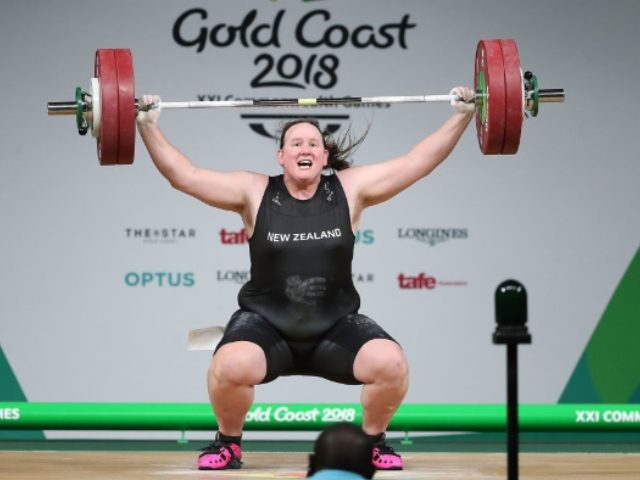New Zealand weightlifter Tracey Lambrechs alleges that her country’s weightlifting authorities attempted to silence her over her criticism of trans weightlifter Laurel Hubbard.
Lambrechs recently retired from the sport of weightlifting, but she has an impressive record of achievements to her credit. She won a bronze medal in the 2014 Commonwealth Games, then took silver at the 2015 Pacific Games, and also competed in the 2016 Summer Olympics in Rio de Janeiro.
With Lambrechs’ retirement, one of the competitors taking her place is Laurel Hubbard, the athlete who became the first transgender weightlifter to be allowed to compete in the women’s categories in Olympics history.
But now that she is retired and beyond the power of New Zealand’s sports authorities, Lambrechs is speaking out, at long last, after years of being told to stay quiet about Hubbard’s bid to be accepted as a female athlete in New Zealand.
Lambrechs now says that she was forced to alter her weightlifting career path because of the entry of the transgender weightlifter into New Zealand’s national weightlifting organization. She says that in 2017, authorities told her that she would have to change weight class and lose a massive amount of weight to qualify because Hubbard had taken her normal spot.
“I was told if I wanted to go to the next Commonwealth Games I needed to lose 18 kilograms [about 40 pounds] in three months or retire” Lambrechs told National Review. “Losing that much weight quickly was not ideal for my health and I suffered some severe migraines and started passing out a lot.”
Lambrechs added that when she raised her concerns over Hubbard she was told to pipe down and be “resilient.”
“Psychologically speaking it’s very upsetting and stressful,” she said of her efforts to stay a viable athlete in her chosen field.
Lambrechs added that other athletes didn’t have the support system to make such drastic changes to their athletic training and Hubbard’s arrival affected them much harder.
But Lambrechs also said that the country’s sports authorities warned female weightlifters not to speak out about Hubbard.
“We were told not to talk to the media and were warned that if we did, we could bring the sport into disrepute and then could miss out on being selected or could be dropped from national teams,” Lambrechs continued. “The sports national body did not know how to handle the situation, so they had a knee-jerk reaction and thought silence would be best for them.”
Lambrechs added that she has no personal animosity towards Hubbard.
“At the end of the day, this hasn’t been easy for Laurel either. The outcome I’m hoping for is the safety of women’s sports and the inclusion of transgendered athletes where they can participate in sport at what ever level and not be bullied or harassed,” Lambrechs said.
The IOC has crafted what it claims to be fair standards by ruling that athletes who claim to be transgender women can compete as women if their testosterone levels are below 10 nanomoles per liter for a minimum of twelve months prior to competing. However, this still puts transgender athletes at an advantage because the average female’s testosterone is naturally around 2.5 nanomoles per liter and less. This allows transgender athletes a nearly five times higher testosterone rate over their natural born female counterparts.
Lambrechs is not the only person to speak out against the inclusion of Hubbard at the Tokyo games. This month, a petition was launched to have Hubbard removed from the games. To date, the petition has earned just over 34,000 of the targeted 35,000 signatures.
Follow Warner Todd Huston on Facebook at: facebook.com/Warner.Todd.Huston.

COMMENTS
Please let us know if you're having issues with commenting.